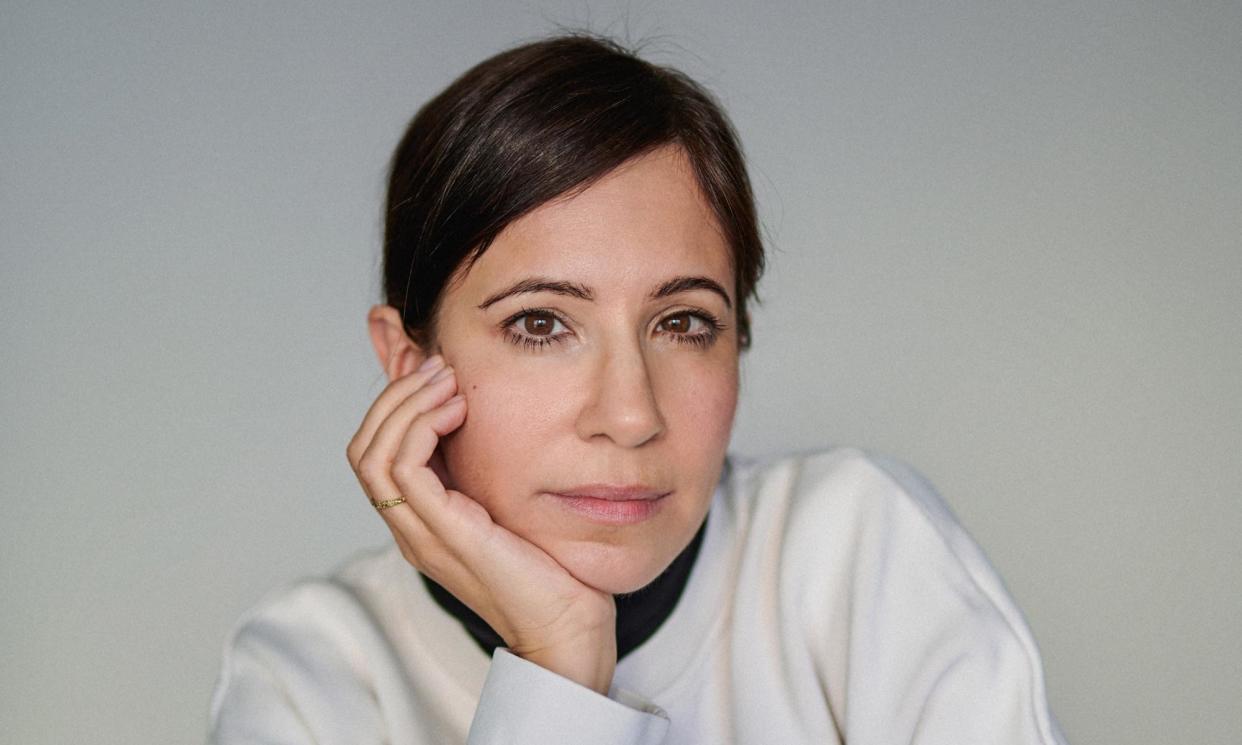Bonding by Mariel Franklin review – a comprehensive vision of a devastated society

It’s rare but it does happen: a debut novel comes along that’s so obviously impressive, so advanced in the reach of its ideas and the gracefulness of its execution, that you want to start proselytising for it before you’ve even turned the final page. With its dissident intelligence and its comprehensive vision of a devastated social sphere, Mariel Franklin’s Bonding is the work of an author whose importance already feels assured.
Zoning in on a milieu of tech and pharmaceutical workers in 2020s London, Bonding depicts western society as a juggernaut zombie, digitally reconfigured and bereft of a coherent system of values, that staggers onwards in flight from an all-pervading truth: “no one had any idea how to live”.
A lonely office worker in her early 30s, Mary swipes on dating apps and streams Netflix shows on her laptop while reflecting on the gulf between the snobbish, seductive world promised by the Agatha Christie novels she had read as a kid, and the shock that awaited her in adulthood: “Communications had transformed completely […] Society had become more abstract to the point that relationships hardly ever happened.”
Let go from her corporate job and what her charismatic friend and former lover, Lara, calls its “grey goo of non-player characters”, Mary takes a trip to Ibiza. There she meets Tom, a recovering addict with a forlorn sexual history who’s rising fast in pharma, honing a potentially revolutionary antidepressant named Eudaxa. Back in London, the pair fall in love – a first for Mary. Meanwhile Lara, once an aspiring artist who saw through the hollowness of the art market, is making waves as the founder of a dating app called Openr.
As the trio and their friends mingle and collude at art openings and startup launches, Franklin brilliantly conveys the peculiar, posthuman coldness of 21st-century London, a spectral metropolis whose inhabitants dwell in the tight spaces between flows of capital and data. Online life has wrenched human beings from the vestiges of community into a deranging zone of infinite competition. A Zen-talking corporate guru lays it out straight: “Modern life, in short, is unsatisfying for most people. And for some, it isn’t tolerable at all. There are people walking the streets right now who simply can’t endure their lives.”
Franklin is as good describing the thrills of budding love as she is riffing on the implications of experimental pharmacology
Amid the anhedonia and anomie, apps such as Openr attempt to resuscitate a terminally exhausted western sexuality – but only entrench the brute dominance hierarchies that get people reaching for drugs such as Eudaxa. Its concern with desire-drought notwithstanding, there’s no lack of sex in Bonding, from tender or humiliating youthful experiments to VR-enhanced corporate orgies. The vibe is more than a little bit fem-Houellebecq – sans the nastiness, but avec the keen sociological eye, the pervasive sadness and yearning, the drive to understand its characters as cultural-historical nodes, subject to economic forces that call into question their very individuality.
As Eudaxa’s emergence as a global brand sprouts unforeseen consequences, Lara recruits Mary to churn out facile content to boost Openr’s user engagement (posts about “the Three Rs – Race, Rape, and Rich fuckers” – reliably get its alienated swipers in a hot flurry). As the app pursues growth at all costs, the languages of wellness, consent, feminism, antiracism, influencer-spirituality, sadomasochism, and corporate positivity fuse into a hypnotic mush. Meanwhile, an awakened far right promises mass resistance to the annihilation of traditional structures of meaning.
The plot setup of tech and pharma hustlers angling for the big win is a lathe that has ideational sparks flying from every paragraph. Mary’s incisive philosophical narration and big-picture digressions mean Bonding functions equally as novelistic essay or essayistic novel: the bold ideas never come at a cost to the characters’ emotional density or the pleasures of story. Franklin is as good describing the thrills of budding love as she is riffing on the implications of experimental pharmacology or asking what might supersede western individualism.
Although Franklin doesn’t quite plumb the same depths of shame, the comparison to Michel Houellebecq really is apt: few anglophone novelists risk this kind of sweeping civilisational vision, let alone pull it off with such aplomb. Like the shit-stirring Frenchman, Mariel Franklin has her thumb right over the sore spot – my one hope is that next time she’ll press down harder. A zeitgeist-saturated salvo, Bonding is the work of a writer steely enough to peer into the abyss of societal catastrophe, and spirited enough to dream of something beyond it.
Rob Doyle is the author of Threshold and several other books
Bonding by Mariel Franklin is published by Picador (£16.99). To support the Guardian and Observer order your copy at guardianbookshop.com. Delivery charges may apply


